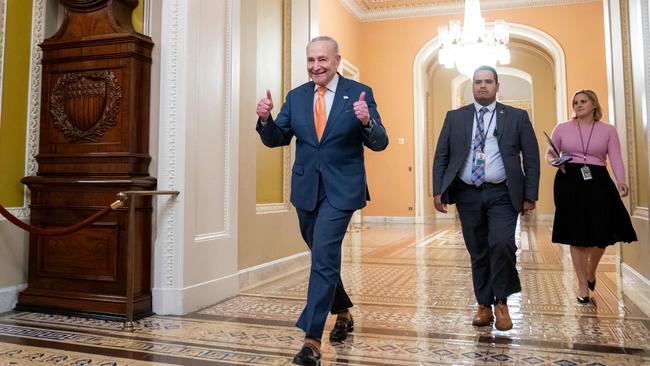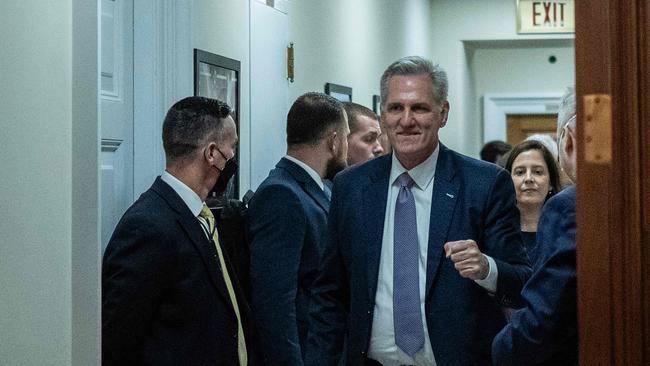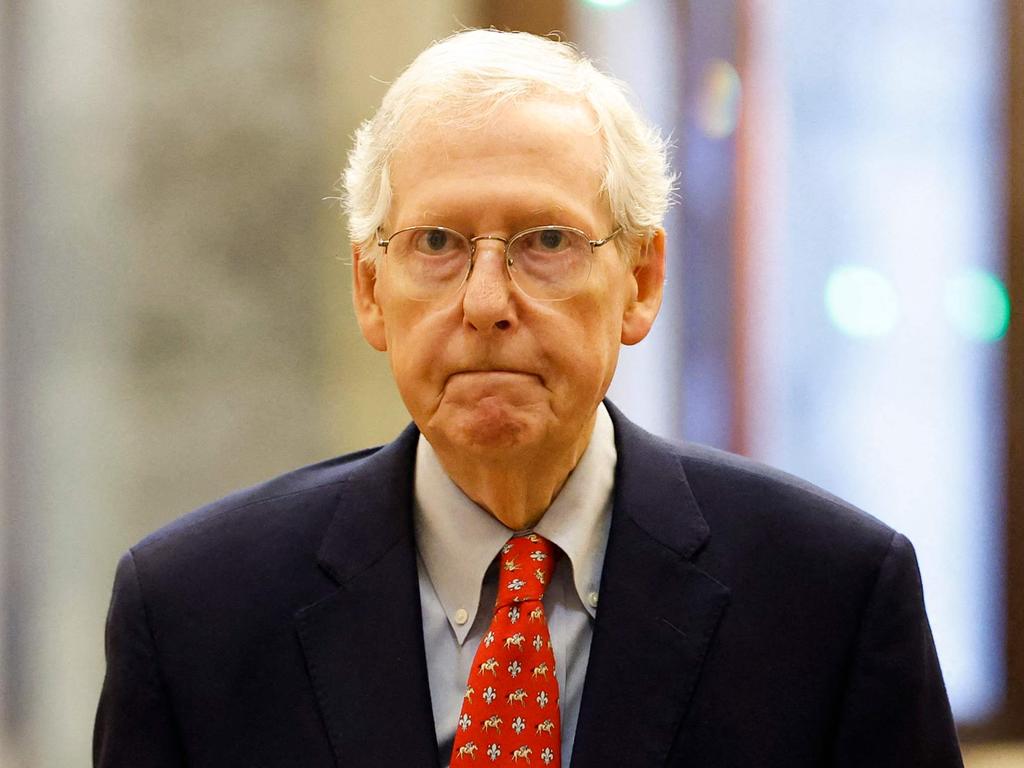US avoids shutdown but at what cost?


Congress has once again put off confronting the deteriorating fiscal situation of the US government. And the longer it waits, the worse the ultimate crash will be. At the moment, this dire situation is not getting the attention it deserves.
The US economy has proved surprisingly strong since the Covid-19 pandemic, defying repeated predictions of recession – largely avoided because of rapidly increasing interest rates – but the long-term prognosis is terrible.
Democrats in the House of Representatives over the weekend decided they would forgo more money for Ukraine in order to save the political embarrassment of yet another government shutdown. Virtually all of them sided with Republican Speaker Kevin McCarthy’s proposal to fund the government until November.
For all the pearl-clutching about a shutdown, they are non-events economically speaking, having occurred 21 times since 1981, always without major economic impact.
Workers still get paid – retroactively, once supply is secured – and the vast bulk of the US population carries on entirely as normal, highlighting how few real services the US federal government provides.
The kabuki theatre of shutdown politics is a distraction from the tough decisions that will need to be made; namely, to slash spending, ratchet up taxes or more likely a combination of both.
As a share of economic output, US government debt is around 100 per cent of US GDP this year – up from 50 per cent only 20 years ago – and without major changes to fiscal policy it is on a path to explode because of the sheer unsustainability.
The US budget deficit in the financial year ending September 30 was a massive $US2 trillion, or around 6 per cent of GDP. This is at a time when the jobless rate is near 60-year lows. Ideally, that’s when governments would be in surplus.
If the US were to fall into recession next year – which is entirely possible as households saddled with declining real wages run out of savings – the budget blowout would be fiscally catastrophic. The US has long been able to rely more on public borrowing than taxation to fund spending than other rich nations.
Having the global reserve currency has made US debt securities highly sought after, lowering Washington’s borrowing costs. US taxpayers therefore don’t have to shoulder the full cost of funding their nation’s massive military.
But increasing interest rates and a long-term assault on the US dollar by the BRICS nations, will make this enviable feat much harder.

The 10-year US government bond rate last week soared to 4.7 per cent, the highest level in 16 years. Servicing government debt is going to chew up a much greater share of the budget. By 2029, the ratio of interest to GDP will total 3.2 per cent, the highest since 1940, according to the US congressional budget office.
Consider for a moment the magnitude of the challenge.
To balance the budget by 2032 without touching defence spending – which is unlikely to fall in the current geopolitical climate – everything else, including the sacred cows of Medicare and Social Security (pensions), would need to be slashed by 33 per cent, according to the nonpartisan Committee for a Responsible Budget.
Even the small group of so-called extreme Republicans, which voted to force bigger spending cuts in congress, wasn’t arguing for anything like austerity measures to address the crisis.
The reality is the US government is nursing wartime debts without having fought a major war. It’s troubling to consider how ill-prepared Washington is fiscally if a major confrontation with China or Russia were to occur. Both those governments are in far better fiscal shape than the US, with much lower public debt and, in the case of Russia, a low, flat 13 per cent income tax rate that could be significantly increased.
“If an armed conflict between the US and China were to happen, there is no doubt that management of the US government budget would be dramatically affected. Wars are brutally expensive,” wrote esteemed US economist Harald Malmgren in an August research note.
The Biden administration has blithely ramped up federal spending on renewable energy subsidies, infrastructure and economic support for Ukraine without increasing taxation.
For all the administration’s rhetoric about fiscal prudence Republicans have little credibility on the subject, proving far more spendthrift in office than their supposedly reckless opponents. The Reagan, Bush and Trump administrations were responsible for the overwhelming bulk of US debt.
John Maynard Keynes, a proponent of bigger government in the 1930s, once famously opined that public spending much beyond a quarter of the economy would start to seriously sap economic growth. Combined federal and state government spending in the US are currently of the order of around 40 per cent.
Ideally, the US would extricate itself from this fiscal quagmire by cutting spending, swathes of which are economically damaging and wasteful.
But that’s probably not going to happen. Public spending almost never declines. It’s hard to see any administration trying to slash Medicare and Social Security, which are both well liked programs for lower income Americans.
Taxes in the US are relatively low compared to other developed nations and, as the most powerful and attractive economy in the world, the country has greater scope to tax skilled international workers and investment without fearing an exodus to other locations. Increasing tax on the rich won’t cut it; there is simply not enough of them. The US middle and lower classes will be required to fork out more in tax – perhaps via freezing indexation of the income tax scales (Australia-style) – no matter how dishonourable and sneaky such a policy would be.
Whoever wins the White House next year is going to face painful economic choices.






Hooray, the US government shutdown has been averted! That’s the prevailing attitude in Washington, but the last-minute agreement at the weekend to avoid another shutdown offers no cause for celebration.